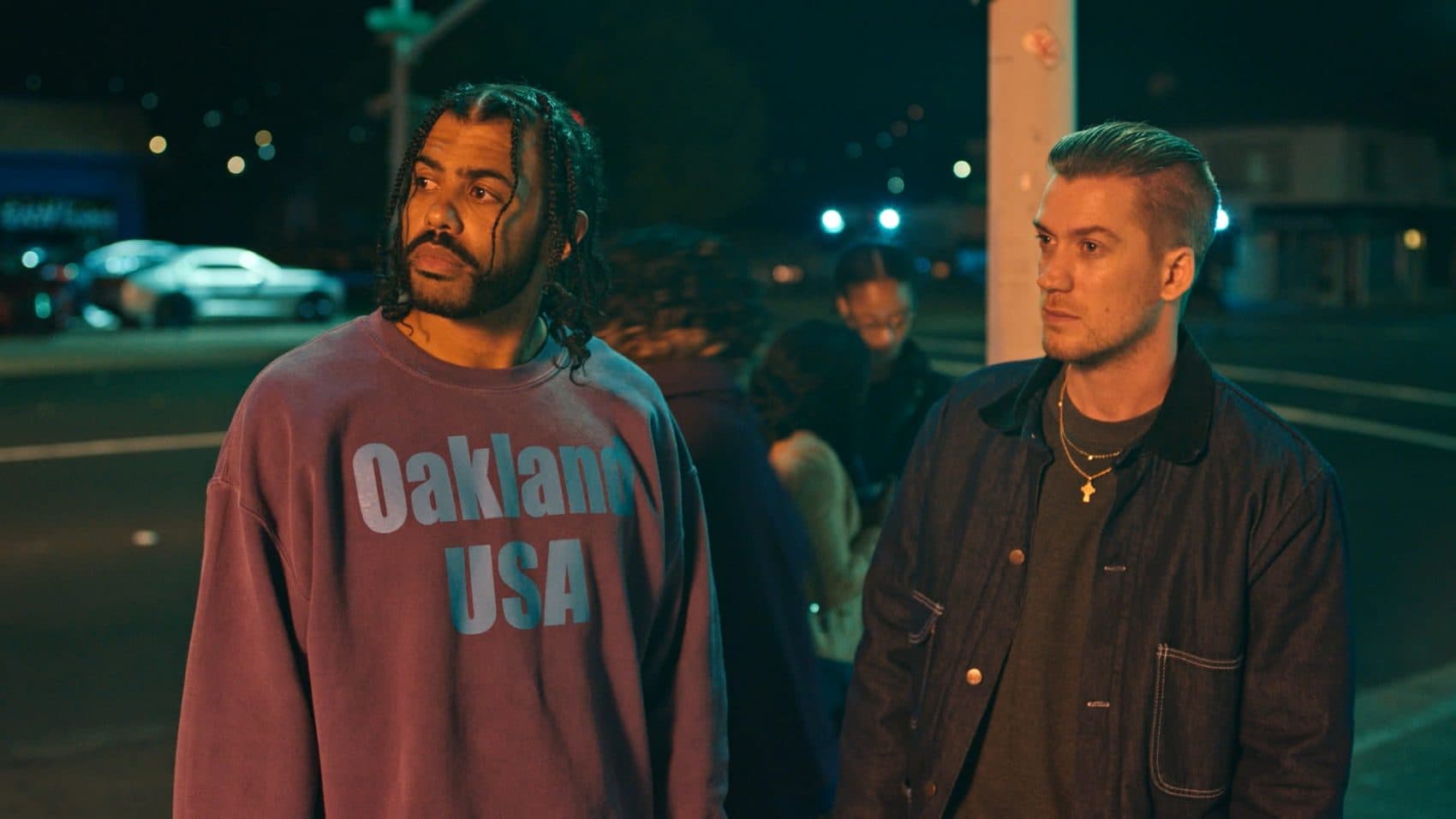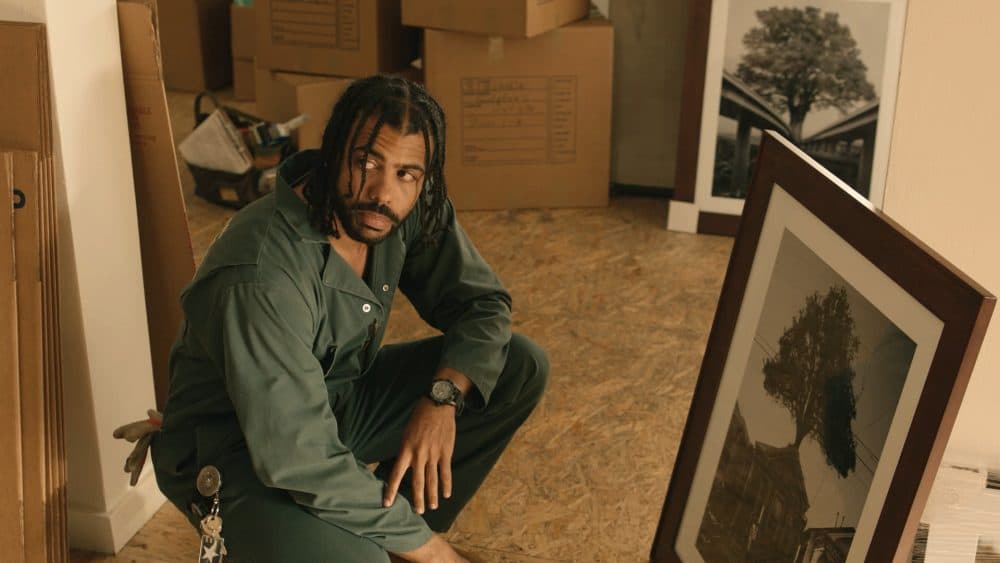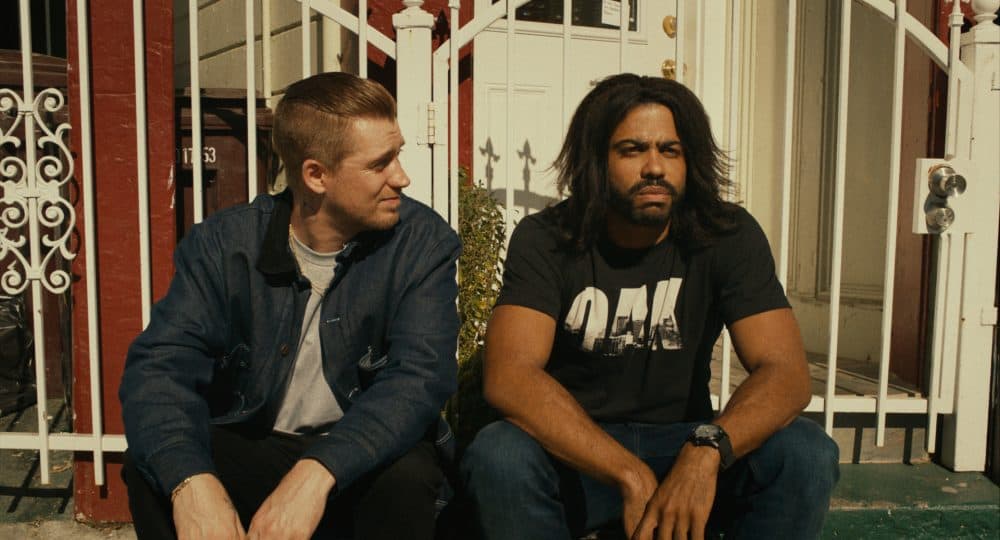Advertisement
Sobering And Funny, 'Blindspotting' Wants To Return Feeling To Our Collective Consciousness

Daveed Diggs’ and Rafael Casal’s “Blindspotting” orbits around old subject matter; you can tell by our numbness to it. This is a movie of the moment, a moment when ingrained racism couples with high stress situations and over-armed law enforcement is getting more public attention than in decades past.
With “Blindspotting,” Diggs and Casal seek to return feeling to our collective consciousness. The film comes courtesy of music video director Carlos López Estrada, but make no mistake: Diggs and Casal are its true authors, having worked on it together for over 10 years before Lionsgate snatched it up out of Sundance in January. That’s a victory in its own right, as Diggs sees it: “A company like Lionsgate, which doesn’t need to put money behind this, that’s willing to, is betting on the right moral compass of the country,” he says, reflecting on the film at this year’s Independent Film Festival Boston (where “Blindspotting” served as the Narrative Spotlight Centerpiece Film). “That’s really exciting, because most people won’t take that bet right now.”
“Blindspotting” is challenging, painful and necessarily messy; it makes no grand optimistic statements about the spirit of man and doesn’t offer easy answers, because that would betray the purpose of the exercise. “I think what we tried to do in this film,” Casal says, “was tell a personal story that’s harder to forget, with a character, and characters, that you will love, which is just another attempt to make this an empathetic subject matter for a country that can’t seem to agree whether or not this is something that needs to be a priority.”
“Blindspotting” is an ode to its setting, Oakland, as well as a call to action, a comedy, and a showcase for Diggs’ and Casal’s immense talent as actors, writers and MCs. Our protagonist, Collin (Diggs), is a convicted felon waiting out the last days on his year-long probation, no easy task being as his best friend, Miles (Casal) is a lightning rod for trouble. They spend their time working for a moving company and re-acclimating Collin to life in their rapidly gentrifying hometown, until one evening Collin witnesses a cop (played by Ethan Embry) gun down an unarmed black man before his eyes.

“It’s a little bit crazy ... that while we’re writing this, the only way to make it personal was to have Collin actually witness the shooting. That’s where we are, you know?” says Diggs. “His best friend hears about it, everyone else in his community hears about it. He’s the only one affected like this that we meet, except perhaps the cop who shot him. The people directly involved with it were the only ones we could imagine being directly affected by it, in a way that was enough for it to change their lives in a significant way, in a way where Collin’s PTSD changes from his normal everyday being black PTSD.”
"Blindspotting" wields Collin’s trauma both to summon audience outrage and to urge empathy for him. “I think where our film went from was, look at this ridiculous thing that we’re finally making a point about," Casal says. "Let’s use this while we’re angry. Let’s use this while it’s personal, while it has a face. And then we didn’t. As a country, we didn’t.”
The list of names that must be preserved in America’s public conscience is immense, and continues to grow. “Blindspotting” may be a work of fiction, but basing that work in reality, both the reality we live in and the reality of Oakland, and shaping the narrative around well-drawn characters like Collin, has the power to affect change, if not within the culture then at least within individuals.
Advertisement
That’s what activism is to Casal: “Making it entertaining so that it’s a story you’re willing to understand. I don’t know any greater catalyst for change than empathy that you’ll pay for. That’s really, really powerful.”
Maybe “Blindspotting” will light fires under its viewers as Casal hopes, and inspire them to right the wrongs they see in the world. That’s the best case scenario for any movie made as a reaction to atrocity. But Diggs hopes simply that people watch the film and see hope itself. “Things aren’t great, but things weren’t great before,” says Diggs. “This incident just sort of illustrated how not great, really, the conditions of our country are. But also look at what wild, inventive, charismatic people we met over the course of this time. All these people are real people who live in this world. That, to me, is a hopeful thing.”

And that hope opens the door for much of the film’s comedy, according to Diggs. After the rude awakening of the 2016 presidential election -- "I had a misunderstanding of how great our misunderstanding was," he jokes — Diggs found solace in his belief that people are still people. “I look around me and I see just a bunch of good people trying to figure it out. To me that’s hopeful, and to me that allows for a ton of comedy, because people are funny. Trying hard and failing is funny sometimes,” he says with a laugh.
That raises an important question: How do audiences find humor in a film like “Blindspotting,” where the plot hinges on reenactment of awful systemic brutality ripped from the headlines? Sobering as the movie is, it’s remarkably funny at the same time, perhaps in keeping with how Casal and Diggs themselves view the movies that they love. “I don't think of any of my favorite movies in terms of their genre. I think of them in terms of how I feel about them, you know?” says Casal. Great movies are complicated. They require extra processing from their viewers. As far as “Blindspotting,” he notes, “I hope that the mechanism of comedy and the stakes of the drama and the violence paint a world that’s worth wanting to revisit and think deeper about.”
At this, Diggs takes a beat before adding in his two cents. “I hope it feels true to life. You’re never in one genre of movie in real life, you know? We all exist in all of them at the same time.”
